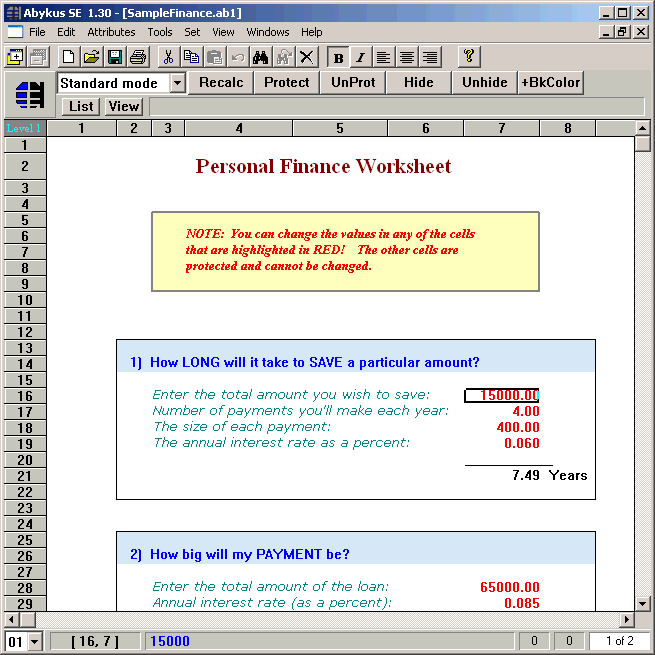Abykus
- Category
- Business
- Enhanced Calculators

- Developer: Brad L. Smith
- Home page: www.abykus.com
- License type: Free
- Size: 751.15 KB
- Download
Review
Abykus is an object-oriented spreadsheet for Windows that adds a exciting new dimension to the classic 'what-if' analysis. While electronic spreadsheets have undergone many important changes over the years, they remain pretty much what they've always been - giant ledger sheets capable of storing a single value or formula in each cell. Abykus extends this concept by allowing objects (i.e. matrixes, tables, coordinates, polygons, profiles, cross-sections, etc.) to be stored in individual cells, which makes the spreadsheet especially well suited for scientific applications that require complex data types, such as those often encountered by land surveyors and civil engineers. Using a powerful set of integrated functions, objects can either stand alone or be used as building blocks to create other objects. Abykus also includes a powerful script language, similar to the C programming language, that lets users create their own routines that look and behave like built-in functions. Scripts are easy to maintain and share, since they are created and stored in external library files as opposed to being imbedded in the worksheets that access them. Another important difference that distinguishes this spreadsheet from others is the manner in which cells are addressed. The standard "A1" cell naming convention has been replaced with a significantly more powerful notation. Instead of using a confusing combination of letters and numbers to identify a cell's position on a worksheet, numbers (i.e. algebraic expressions) or even other cell addresses are used to represent both the cell's row and column position.